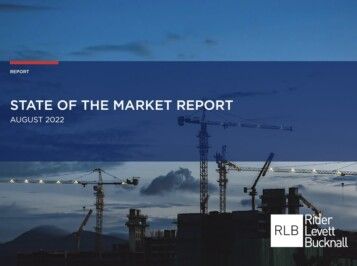RLB recently conducted a global survey, where our Directors and Partners provided their views on the effects of the current geopolitical crises. The global analysis will be published as a separate document, as will particular regions’ results, but this report looks at the UK findings and responses.
There can be no doubt that the construction industry has moved from trying to create certainty in the long term, to navigating uncertainty in the short term and within the larger economic climate. The global construction market is experiencing the volatility of commodities and labour pricing caused by a combination of:
- Ukraine / Russia conflict
- Post-Covid recovery
- New Covid waves
- Post-Brexit impact
- Rising cost of energy and fuel
We know there are project challenges around the volatility of prices, lead in times of materials and shortages of labour – and at times project feasibility is being questioned. However, projects must continue as the demand and need for buildings continues, be it affordable accommodation, a new school or office space. At RLB, we listen to the wide range of voices in the supply chain, from suppliers, sub-contractors and contractors talking about price increases, profit margin squeezes and challenges within the labour market, as well as clients needing certainty in outcomes and reducing risk on projects.
To ensure we remain close to our supply chain and bring the best counsel to our clients, we recently launched a global survey to find out the exact impact of geopolitical issues such as the war in Ukraine, the ensuing energy price volatility, the impact of Brexit and other global, European, and domestic challenges.
It is no surprise our first responses have come back with comments such as: “procurement strategies are being reviewed and project viabilities are possibly at risk”, “we are now facing a new world order as a new normal” and “contractors are requesting contractual mechanisms to allow for price adjustment such is the price-volatility of materials.”
Key findings for the UK are summarised throughout this report, download at the top of this page.
FURTHER INFORMATION:

Roger Hogg
UK Research and Development Manager



